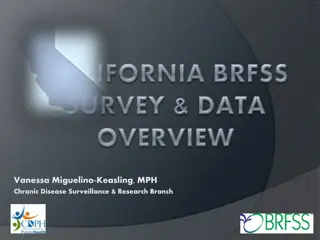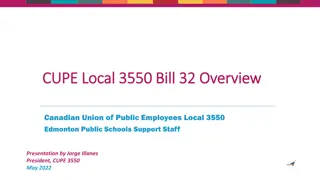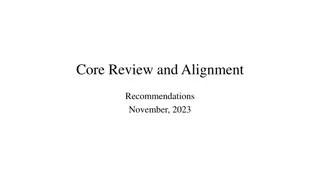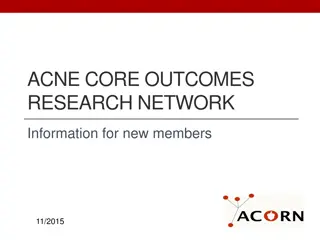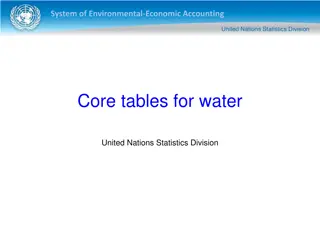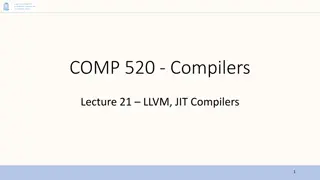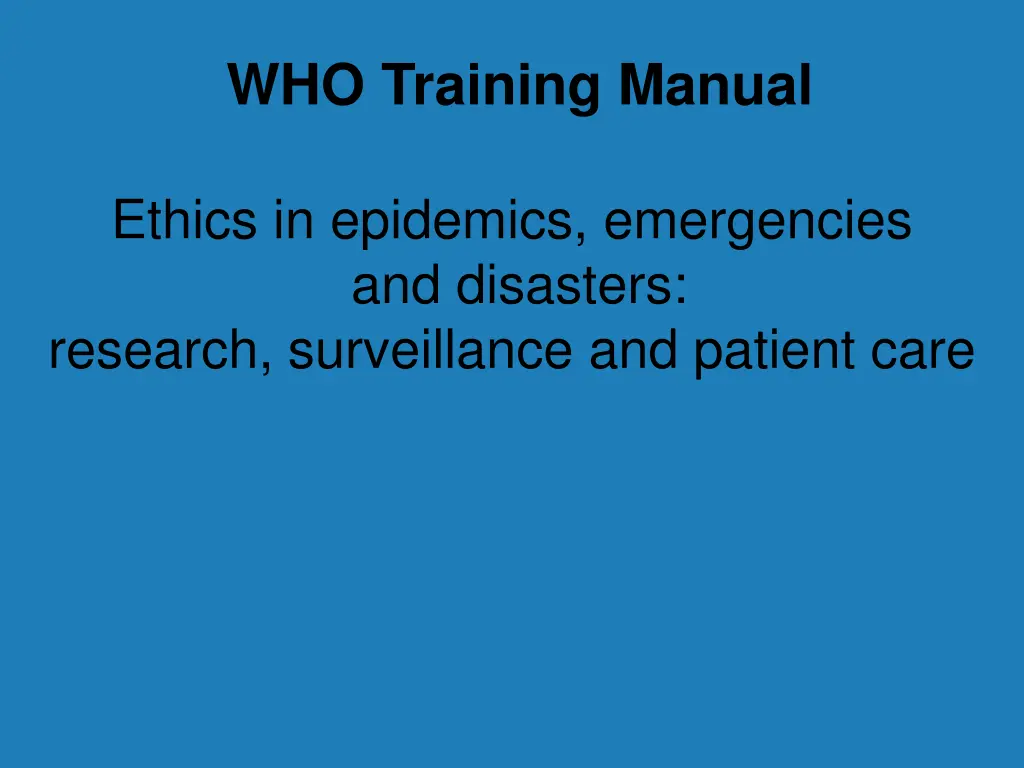
Ethics in Epidemics: Patient Care, Triage, and Resource Allocation
Explore the WHO Training Manual on ethics in epidemics, emergencies, and disasters, focusing on patient care, triage, and ethical decision-making in resource allocation. Learn about core competencies, triage criteria, levels of triage, and alternatives to resource-based strategies. Understand the importance of defining ethically relevant criteria for triage and resource allocation in emergency response situations.
Download Presentation

Please find below an Image/Link to download the presentation.
The content on the website is provided AS IS for your information and personal use only. It may not be sold, licensed, or shared on other websites without obtaining consent from the author. If you encounter any issues during the download, it is possible that the publisher has removed the file from their server.
You are allowed to download the files provided on this website for personal or commercial use, subject to the condition that they are used lawfully. All files are the property of their respective owners.
The content on the website is provided AS IS for your information and personal use only. It may not be sold, licensed, or shared on other websites without obtaining consent from the author.
E N D
Presentation Transcript
WHO Training Manual Ethics in epidemics, emergencies and disasters: research, surveillance and patient care
Part 2 Patient Care
Core competence 6 Ability to define ethically relevant criteria for triage, resource allocation and standard of care in emergency response
Corresponding learning objectives Discuss ethical frameworks and criteria for triage and rationing in emergencies. Understand how criteria for standards of care and treatment can be altered during emergenciesw. Identify issues of benefit-sharing with communities under public health surveillance. Identify issues of equity of access to unproven treatments during research in the course of emergency response. L.O. 1.1
Triage Triage: prioritising the use of scarce medical resources for certain individuals when there is not enough to provide immediate treatment or diagnostic interventions for everyone Assess the nature and severity of an individual s illness/injury to determine their health status and non-medical considerations as relevant factors in deciding who should be prioritised Can also use triage to make decisions about transportation priority and facilities where individuals receive further care Also used outside of public health crises e.g. emergency departments Salvageability Use this information to decide the type and priority of care to be given L.O. 1.1
Levels of triage Levels of triage primary triage (e.g. at scene) secondary triage (e.g. emergency room) tertiary triage (e.g. operation rooms) At each level there are other considerations: safety of patients and personnel severity of medical need human resource constraints treatment options vary These considerations may change the nature of the ethical decision to be made L.O. 1.1
Triage criteria Save the Greatest Number of People First Come, First Served Protect the Most Vulnerable Equal Access Priority for the Most Important L.O. 1.1
Alternatives to triage Non-resource-based strategies used to mitigate the scarcity of supply of resources or personnel: Early patient discharge Redirecting non-urgent patients to alternative settings Cancelling elective procedures or testing. Such strategies are not ethically neutral alternatives to triage and may raise important ethical questions L.O. 1.1
Ethical Principles Substantive principles Outline considerations which seek to explain why a particular policy/action is ethically justified Procedural principles Outline the way decisions/actions should be carried out in order to be considered ethically justified Both are relevant in triaging individuals in a public health crisis L.O. 1.1
Substantive Ethical Principles Individual liberty Protection of the public from harm Proportionality Privacy Duty to provide care Reciprocity Equity Trust Solidarity Stewardship L.O. 1.1
Procedural Ethical Principles Reasonableness Transparency Inclusiveness Responsiveness Accountability L.O. 1.1
Standard of Care Standard of care refers to treatment recognized by professional consensus as adequate for a given condition Legal implications may be sued for malpractice if fail to provide standard of care Ethical implications consider whether it is acceptable for standard to vary according to circumstances L.O. 1.1
Factors affecting standard of care Factors leading to altered standard of care in a public health emergency: Logistical constraints Increased availability of unproven treatments Variability in risk aversion Research with controlled arms Variability of coverage by public sector L.O. 1.1
Standard of care in emergencies SOC may need to be compromised in public health emergencies May need to decide between triaging/rationing versus reducing the SOC for all to maintain equity When SOC is lowered, conducting clinical trials may be more affordable Unethical to divert resources away from clinical care to research as may reduce SOC L.O. 1.1
Benefit sharing Concept develops in 1970s in response to notion of common heritage of humankind, but only recently a research ethics topic Gaps in power and wealth led to concerns encouraging exploitation Growing trend to internationalisation of research greater attention to how benefits of health research should be shared With research participants With humanity more generally Benefit sharing is the action of giving a portion of advantages/profits derived from the use of human genetic resources to the resource providers to achieve justice in exchange, with a particular emphasis on the clear provision of benefits to those who may lack reasonable access to resulting healthcare products and services without providing unethical inducements Schroeder D. Benefit sharing: It s time for a definition. Journal of Medical Ethics 2007; 33(4): 205-209. L.O. 1.1
Ethical justification for benefit sharing Property rights Initially done in plant and animal genetics But ownership not generally applicable in clinical research Beneficence In clinical research participants take risks in allowing experimental interventions to be tested on them Since they are taking the risks some suggest they should reap some of the rewards Declaration of Helsinki participants in clinical trials should be provided beneficial interventions after trial ends Solidarity with fellow humans and global justice Research should benefit those with greatest needs, even if costs must be borne by those who are more affluent L.O. 1.1
Conclusion Core Competence 6 Triage in the context of emergency situations is the prioritising the use of scarce resources for certain individuals, when there are not enough to provide treatment to everyone Substantive ethical principles address the ethical justification for a particular action, procedural principles consider the way decisions/actions should be carried out Standard of care refers to treatment recognized by professional consensus as adequate for a given condition Standard of care can be affected and altered by various factors during an emergency Gaps in power and wealth between LMICs and wealthy nations led to the concept of benefit sharing, which can be applied to research in a medical context L.O. 1.1
Sources Critical Care Triage During a Pandemic, by M.J. Smith and A.M. Viens, in Drue H. Barrett et al. (eds.), Global Perspectives on Public Health Ethics: A Casebook (Springer, 2014) UNESCO. Universal Declaration on Bioethics and Human Rights. 2005. Available at http://www.unesco.org/new/en/social-and-human- sciences/themes/bioethics/bioethics-and-human-rights/ Schroeder D. Benefit sharing: It s time for a definition. Journal of Medical Ethics 2007; 33(4): 205-209. Available at http://jme.bmj.com/content/33/4/205.full.pdf+html Selgelid M. (2005). Module four: standard of care and clinical trials. Developing World Bioethics, 5(1): 55-72. Annas GJ. Standard of care In sickness and in health and in emergencies. (2010). The New England Journal of Medicine, 362(22), 2126-2131. L.O. 1.1





